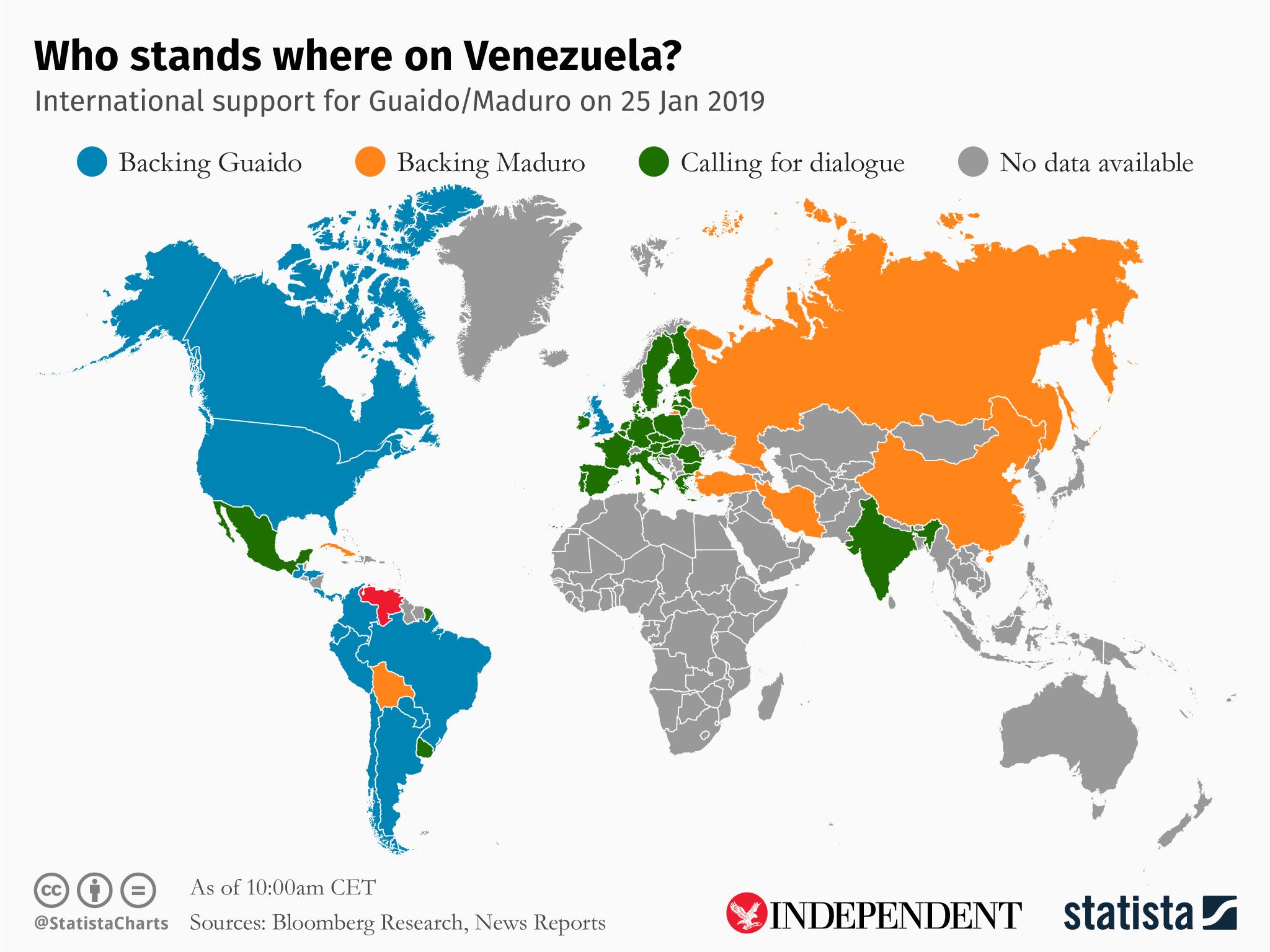Venezuela crisis: Opposition leader Guaido offers 'amnesty' for President Maduro
'Amnesty is on the table. Those guarantees are for all those who are willing to side with the constitution to recover the constitutional order,' says National Assembly leader
Venezuela’s opposition leader has indicated he would grant amnesty to embattled president Nicolas Maduro if he cedes power.
Juan Guaido, who has declared himself interim president of the South American country amid mass demonstrations against Mr Maduro, said “all those who are willing to side with the constitution” could be offered reprieves.
Speaking from an undisclosed location, the 35-year-old National Assembly leader told the American Spanish-language TV channel Univison that an amnesty could also be offered to the president and his closest allies.
“Given time it will be evaluated. Amnesty is on the table," he said. "Those guarantees are for all those who are willing to side with the constitution to recover the constitutional order.”
Mr Guaido’s whereabouts have been a mystery since he was symbolically sworn in as interim president before tens of thousands of cheering demonstrators at a rally on Wednesday.
The young politician set up a potentially explosive struggle for power this week when he stood before thousands of protesters in the country's capital Caracas and swore himself in as interim president.
He told thousands of cheering supporters that he would end the country’s “dictatorship”, amid growing anger over Mr Maduro beginning a second six-year term as president after he claimed victory in widely boycotted elections.
His claim to be Venezuela’s legitimate president has been backed by the US, the UK and numerous Latin American nations, who have called for free and fair elections to restore political order.
But a defiant Mr Maduro, who has received support from Russia, China, Mexico and Turkey, has refused to stand down and accused the opposition of attempting to stage a Washington-backed coup.
His government has cut ties with the US and so far retained the crucial backing of the military.

The elected National Assembly, which has an opposition majority, nonetheless passed a decree this week, intended to prevent the prosecution of military officials and civilians who help to restore democratic order.
Meanwhile United Nations human rights boss Michelle Bachelet called has for an independent investigation into alleged excessive use of force by Venezuelan security forces, citing reports of 20 people killed and more than 350 detained in protests this week.
"I am extremely concerned that the situation in Venezuela may rapidly spiral out of control with catastrophic consequences", the former president of Chile said in a statement.
Expressing support for Mr Guaido, US national security adviser John Bolton said the US was seeking to ensure Venezuelan oil revenue was funelled to the opposition leader, rather than Mr Maduro, although it unclear how this could be acheived.
Donald Trump meanwhile, has said “all options are on the table”, including possible military invervention, as the Venezuelan president clings to power.
Venezuela will need “massive foreign help” for years to come event if power is transferred peacefully, according to Oliver Stuenkel, professor of international relations at Sao Paolo’s Fundacao Getulio Vargas university.
He said: “Many international observers are rooting for the protesters in Venezuela, partly because there is an implicit assumption that Maduro’s resignation would lead to free elections and the return of democracy. But that is only one of a large number of possible outcomes. Even in the best of all worlds, a peaceful transition, Venezuela will need massive foreign help for at least a decade.
“Chavez and Maduro completely destroyed the country’s bureaucracy; it’ll take years for any new government to train technocrats, ranging from health to water management, security and diplomacy.”
Join our commenting forum
Join thought-provoking conversations, follow other Independent readers and see their replies
Comments
Bookmark popover
Removed from bookmarks